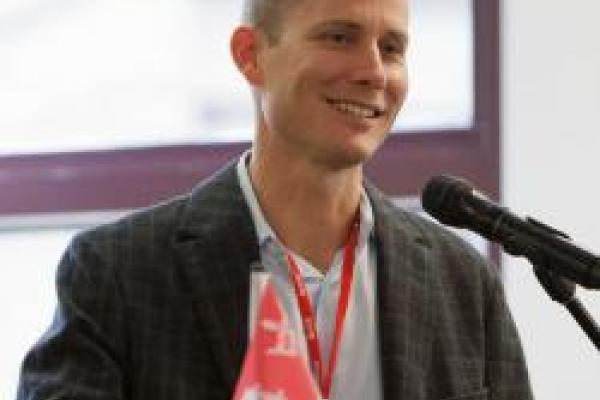
*NOTE: Due to unfortunate travel difficulties this event has been cancelled. It may be rescheduled for another semester.*
This talk will situate new computational methods in topic modeling within the longer history of cultural practices of topical reading and readerly commonplacing (topos koinos, locis communis). In doing so I want to explore the ways in which the spatial reading models being constructed by computational approaches to literature provide new and divergent ways of thinking about textual meaning and textual community. In close reading the tools of distant reading, this project situates itself within a larger line of inquiry aimed at understanding how computation mediates and frames literary meaning today.
Andrew Piper is Associate Professor and William Dawson Scholar in the Department of Languages, Literatures, and Cultures at McGill University. His work explores the application of computational approaches to the study of literature and culture with a particular emphasis on network theory and questions of transtextuality. He is the director of .txtLAB, a digital humanities laboratory at McGill, as well as leader of the Digging into Data Project, “Global Currents: Cultures of Literary Networks, 1050-1900,” and the multinational partnership grant, “NovelTM: Text Mining the Novel,” which brings together 21 partners across North America and Europe to undertake the first large-scale quantitative, and cross-cultural study of the novel. He is the author most recently of Book Was There: Reading in Electronic Times (Chicago 2012) as well as Dreaming in Books: The Making of the Bibliographic Imagination in the Romantic Age (Chicago 2009), which was awarded the MLA Prize for a First Book and honourable mention for the Harry Levin Prize for the American Comparative Literature Association.
This talk is sponsored by the Humanities Institute and co-sponsored by Project Narrative and by the Department of Germanic Languages and Literatures.
